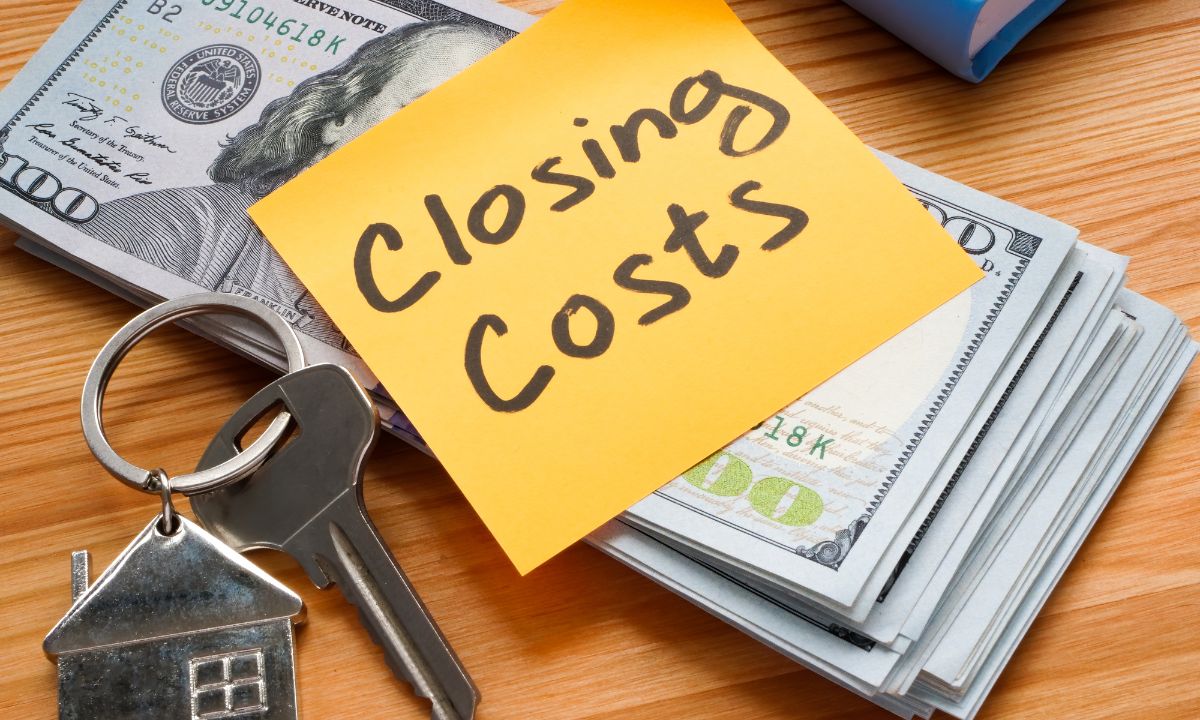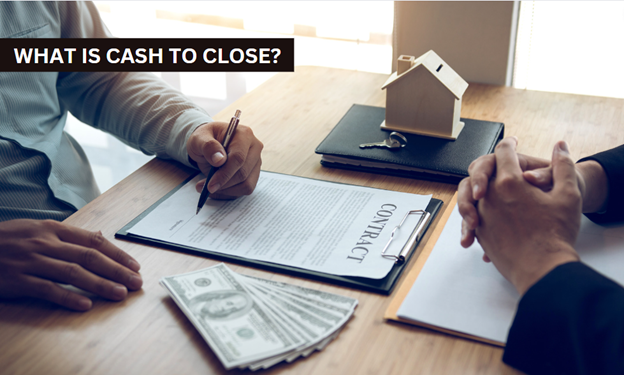 Selling your home can be exciting and emotional. You may be focused on the potential profit from the sale, it’s essential to understand the costs that come with closing the deal. Closing costs can significantly impact your net proceeds, so being prepared will help you avoid surprises and plan accordingly.
Selling your home can be exciting and emotional. You may be focused on the potential profit from the sale, it’s essential to understand the costs that come with closing the deal. Closing costs can significantly impact your net proceeds, so being prepared will help you avoid surprises and plan accordingly.
1. Real Estate Commissions
The largest portion of your closing costs is usually the commission paid to real estate agents. This fee is typically split between the listing agent and the buyer’s agent and ranges from 5% to 6% of the sale price. For instance, if your home sells for $300,000, expect to pay $15,000 to $18,000 in commissions. While this may seem like a hefty amount, it’s an investment in marketing your property and ensuring a smooth transaction.
2. Loan Payoff Costs
If you have an outstanding mortgage on your home, the balance must be paid off at closing. This includes:
-
Your Remaining Mortgage Balance: The total amount still owed on your loan.
-
Prepayment Penalties: Some lenders charge a fee for paying off a mortgage early. Check your loan terms to see if this applies to you.
-
Home Equity Loans or Lines of Credit: Any secondary loans tied to your property must also be settled.
3. Transfer Taxes and Fees
State and local governments typically charge taxes and fees to transfer property ownership. These can vary widely based on your location but often include:
-
Transfer Taxes: A percentage of the home’s sale price.
-
Property Taxes: Any unpaid property taxes must be settled before closing. In some cases, you may need to pay a prorated amount if taxes are due shortly after the sale.
4. Title Insurance
In many cases, sellers are responsible for paying for the buyer’s title insurance policy. This insurance protects the buyer from potential title issues, such as liens or ownership disputes, that could arise after the sale. The cost varies depending on the property’s sale price but is typically a few hundred dollars.
5. Attorney Fees
In some areas, hiring a real estate attorney is customary or required. If you enlist legal help, their fees will be included in your closing costs. These fees ensure all contracts and paperwork are legally sound and protect your interests during the transaction.
Additional Costs to Consider
There are other potential costs that may arise, depending on your specific sale agreement or the buyer’s requests:
-
Outstanding Liens: Any unpaid debts tied to your property, such as contractor liens or back taxes, must be cleared.
-
HOA Dues: If your home is part of a homeowners’ association, ensure your dues are current.
-
Termite Inspections or Home Warranties: Sometimes sellers agree to cover these costs as part of the negotiation process.
-
Repair Credits: Buyers may request credits for repairs identified during the home inspection.
How to Prepare for Closing Costs
Understanding and planning for these costs can help you avoid surprises at closing. Here are some tips:
-
Request a Net Sheet: Your real estate agent can provide a seller’s net sheet, which estimates your closing costs and expected profit.
-
Negotiate Costs: In some cases, you can negotiate to share certain expenses, such as transfer taxes, with the buyer.
-
Keep Records: Have all necessary documents, including loan payoff statements and tax records, ready to streamline the process.
While closing costs can reduce your overall profit, being informed and prepared allows you to make better decisions. Give us a call to ensure you understand each expense and maximize your net proceeds.
Selling your home is a significant milestone and understanding closing costs is just one part of the process to help you achieve a successful and stress-free sale.
 Selling your home can be an exciting yet daunting process, and one of the most pressing questions you may have is, “What will it cost me?” The total expenses involved in selling a home can fluctuate based on various factors, including the sale price, any concessions you might offer to buyers, and the condition of your property. Understanding these costs upfront can help you plan better and minimize surprises down the road.
Selling your home can be an exciting yet daunting process, and one of the most pressing questions you may have is, “What will it cost me?” The total expenses involved in selling a home can fluctuate based on various factors, including the sale price, any concessions you might offer to buyers, and the condition of your property. Understanding these costs upfront can help you plan better and minimize surprises down the road. Buying a home is an exciting journey, but it’s not without its twists and turns. One specific daunting aspect for many homebuyers is understanding the sphere of closing costs. These additional expenses can catch even the most prepared buyers off guard if they’re not properly understood. So, let’s discuss the world of closing costs and shed some light on what to expect when purchasing your dream home.
Buying a home is an exciting journey, but it’s not without its twists and turns. One specific daunting aspect for many homebuyers is understanding the sphere of closing costs. These additional expenses can catch even the most prepared buyers off guard if they’re not properly understood. So, let’s discuss the world of closing costs and shed some light on what to expect when purchasing your dream home. “Cash to Close” refers to the total amount of money that a homebuyer needs to bring to the closing table to complete the purchase of a property. It includes the down payment, closing costs, and other fees associated with the home purchase.
“Cash to Close” refers to the total amount of money that a homebuyer needs to bring to the closing table to complete the purchase of a property. It includes the down payment, closing costs, and other fees associated with the home purchase. After you have found the right house to meet your needs, you need to make the down payment to complete the transaction. Can you show up at the closing table with a suitcase full of cash? Of course, that would be a bit suspect, so that is not actually how it happens. What do you need to do to actually hand over the funds to buy the house?
After you have found the right house to meet your needs, you need to make the down payment to complete the transaction. Can you show up at the closing table with a suitcase full of cash? Of course, that would be a bit suspect, so that is not actually how it happens. What do you need to do to actually hand over the funds to buy the house?  There are some people who are able to pay cash for a home. Typically, these are individuals who are selling an existing property that has gone up in value. Now, all of a sudden, they have a lot of extra money they can spend on a house. If you can pay cash for a home, you have a lot of extra negotiating power. When it is time to complete the sale, who pays?
There are some people who are able to pay cash for a home. Typically, these are individuals who are selling an existing property that has gone up in value. Now, all of a sudden, they have a lot of extra money they can spend on a house. If you can pay cash for a home, you have a lot of extra negotiating power. When it is time to complete the sale, who pays? It’s amazing that in a year with extremely low mortgage rates being reported around the country, closing costs are up by as much as 6% from the previous year. Part of the reason for this is that the stricter regulations on loans have increased the costs to banks, and they always find a way to pass on new costs to the consumer.
It’s amazing that in a year with extremely low mortgage rates being reported around the country, closing costs are up by as much as 6% from the previous year. Part of the reason for this is that the stricter regulations on loans have increased the costs to banks, and they always find a way to pass on new costs to the consumer. When buying a new home, you may have a close eye focused on your budget and expenses, and your goal may be to keep related expenses to a minimum. However, you may also be well aware that a real estate purchase is a legal transaction, and you may be wondering if you need to pay for legal services from a real estate attorney. With a closer look, you can make a better decision that is right for your home buying plans.
When buying a new home, you may have a close eye focused on your budget and expenses, and your goal may be to keep related expenses to a minimum. However, you may also be well aware that a real estate purchase is a legal transaction, and you may be wondering if you need to pay for legal services from a real estate attorney. With a closer look, you can make a better decision that is right for your home buying plans. For first-time home buyers, closing costs are a major hurdle for home ownership. Coming up with a down payment and several thousand dollars for closing costs can be hard without home equity to tap.
For first-time home buyers, closing costs are a major hurdle for home ownership. Coming up with a down payment and several thousand dollars for closing costs can be hard without home equity to tap. When you’ve finally found the home you’re looking for at the right price, it’s easy to think that the hard part is over; however, there’s still a lot to do in order to ensure your purchase goes through without a hitch. If you’re tying up the loose ends on your home purchase, here are some things you should do to avoid any unnecessary delays.
When you’ve finally found the home you’re looking for at the right price, it’s easy to think that the hard part is over; however, there’s still a lot to do in order to ensure your purchase goes through without a hitch. If you’re tying up the loose ends on your home purchase, here are some things you should do to avoid any unnecessary delays.